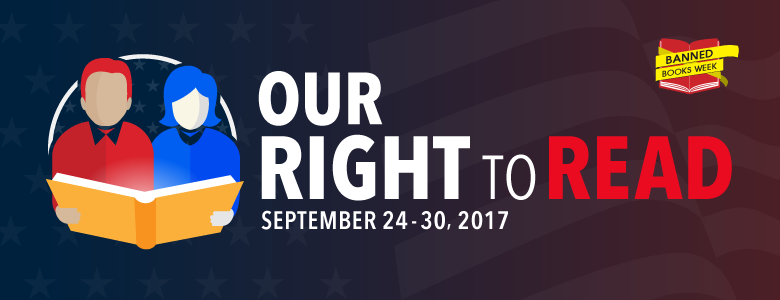“Books won’t stay banned. They won’t burn. Ideas won’t go to jail. In the long run of history, the censor and the inquisitor have always lost. The only sure weapon against bad ideas is better ideas.” — Alfred Whitney Griswold, Essays on Education
Banned Books Week: Celebrating Our Right to Read is September 24-30 this year. The American Library Association has a wealth of information and resources.
The observance began in 1982 as a reminder to Americans not to take this precious democratic freedom for granted. Co-sponsors include organizations representing American booksellers, publishers, journalists, authors defenders of intellectual freedom and, of course, librarians.
Reading, thinking, and voting citizens are expected to consider available information and make choices. As Dolly Parton once said, “I don’t need advice. I need information. I’ll make up my own mind.”
Everyone has opinions. No two people think exactly alike nor are required to do so. Under the US Constitution, the viewpoint of a particular person or group cannot be forced on all the other persons in society. No one has the right to say, “Nobody else can read this just because I say so.”
Book banning promotes the thought that different ideas and the people who believe in them are to be feared and eliminated. While a tolerant attitude is difficult to maintain when viewing, reading or hearing something that makes one’s toes curl, the concept is essential to guarding a place for our own ideas.
One of the reasons librarians have long been vigorous protectors of the first amendment right to intellectual freedom is because there is no universal agreement among library borrowers about what is objectionable. Throughout the history of libraries, almost every classic work of literature has been objected to at one time or another, including the Bible.
A library does not function as a controlled information source presenting only sanitized or “safe” ideas. Guided by a thorough book selection policy, librarians purposely seek to challenge readers with the widest possible range of human thought and experience.
If someone thinks a book is absolutely the worst thing printed since Gutenberg cranked up the first press, librarians will defend both his right to hold that opinion and express it. However, if the same person goes on to demand that book be permanently banned from library shelves, then he is treading on the constitutional toes of others who have an equal right to make choices, read and form opinions of their own.
Who knows, but that the next person to check out that same book might think it’s the best thing she ever read? Next Person might also be of the opinion that the ideas held most near and dear to First Person should be erased off the face of the earth and take steps of her own!
When books are challenged, restricted, removed or banned we all lose part of our birthright as American citizens in the resulting suppressive atmosphere. An author may make revisions, less for artistic reasons than to avoid controversy. The editor and publisher may alter text or elect not to publish for economic or marketing reasons. Staff in bookstores and libraries may find published works too controversial and choose not to purchase those materials for fear of reprisal.
Unexpressed ideas, unpublished works, and unpurchased books are lost forever.
All of which is why librarians think it is better to add viewpoints to a public collection of books rather than subtract any. There are as many ways of looking at the world as there are grains of sand on a beach. Wouldn’t it be boring if everyone was the same? Wouldn’t it be frightening if everyone was forced to read and think as though they were?
Submitted by Kris Adams Wendt.

